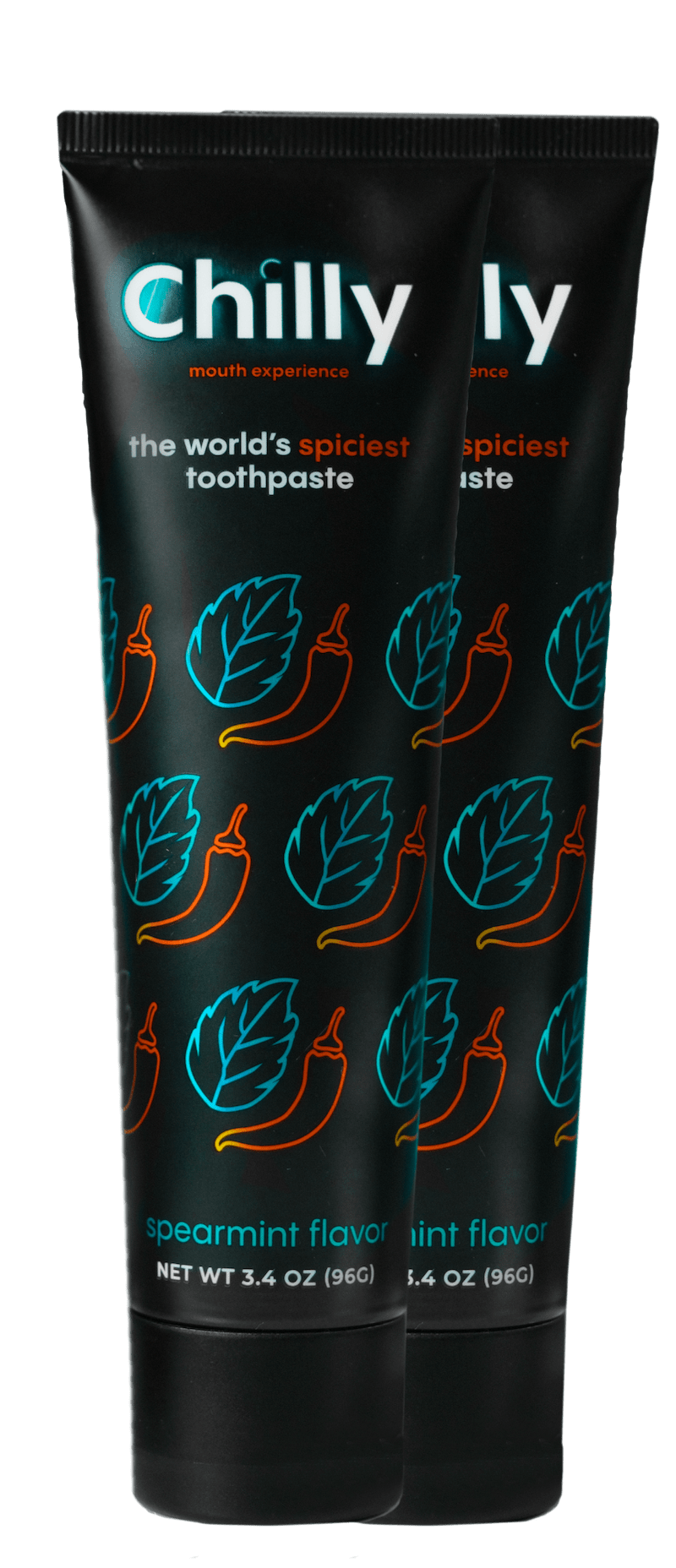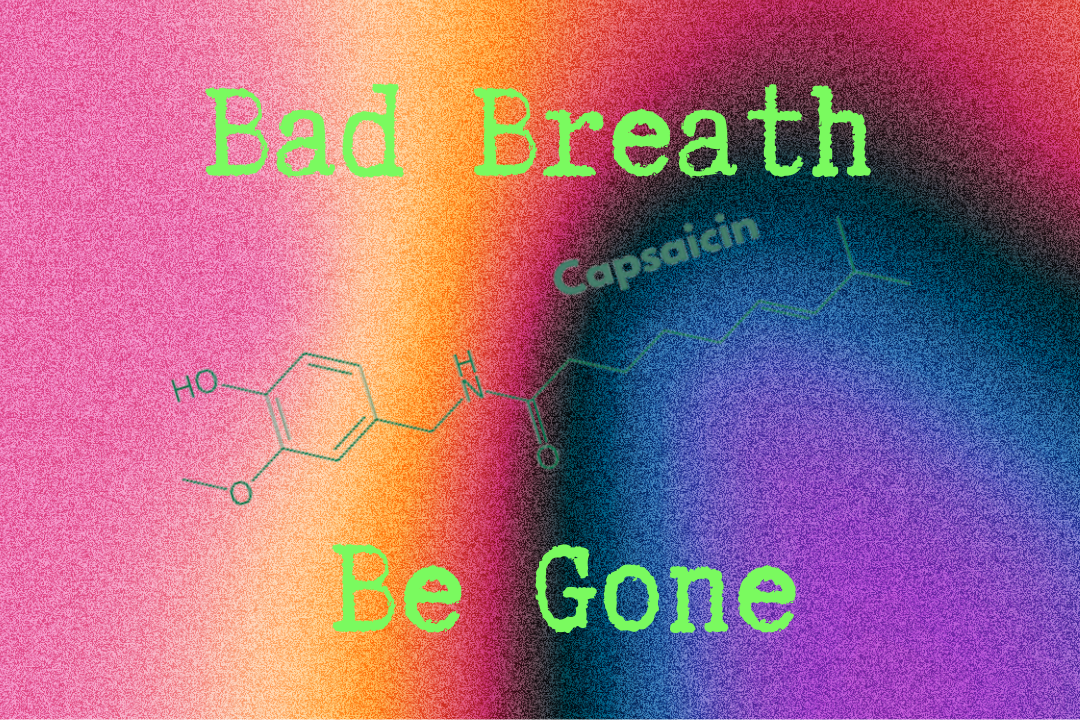What is Capsaicin
Capsaicin is a compound that is found in chili peppers and is known for its strong, spicy flavor. However, recent research has also shown that capsaicin has antimicrobial properties, which means that it can help to kill or inhibit the growth of certain types of bacteria. In particular, capsaicin has been shown to be effective against Streptococcus mutans, a type of bacteria that is a major contributor to tooth decay and bad breath.
To understand how capsaicin can help prevent tooth decay and bad breath, it's important to first understand how these conditions occur. Tooth decay is caused by the production of acid by bacteria on the teeth. When bacteria feed on sugar and other carbohydrates, they produce acid as a byproduct. This acid can erode the enamel on teeth, leading to cavities and other types of tooth decay.
We all have bad breath
Bad breath, also known as halitosis, can be caused by a variety of factors, including poor oral hygiene, certain types of food, and certain medical conditions. However, one of the most common causes of bad breath is the presence of certain types of bacteria in the mouth. These bacteria produce volatile sulfur compounds (VSCs), which are responsible for the unpleasant smell often associated with bad breath.
Enter Streptococcus Mutans
Streptococcus mutans are a type of bacteria that is particularly adept at producing acid and VSCs. This bacterium is a major contributor to both tooth decay and bad breath, as it produces high levels of acid and VSCs that can damage the teeth and cause bad breath.
Capsaicin to the rescue
So how does capsaicin come into play? It turns out that capsaicin is able to disrupt the cell walls of Streptococcus mutans, making it more difficult for the bacteria to grow and reproduce. This can help to reduce the overall number of these bacteria in the mouth, which in turn can help to prevent tooth decay and bad breath.
In addition to its antimicrobial properties, capsaicin has also been shown to have other potential oral health benefits. For example, some studies have suggested that capsaicin may help to reduce inflammation in the mouth, which can be beneficial for people with conditions such as gum disease. Capsaicin may also stimulate the production of saliva, which can help to neutralize acid in the mouth and reduce the risk of tooth decay.
While the research on the potential oral health benefits of capsaicin is still in its early stages, the results so far are promising. If you're interested in incorporating capsaicin into your oral hygiene routine, you can try adding spicy foods to your diet or using products that contain capsaicin. However, it's important to keep in mind that more research is needed to fully understand the potential benefits of capsaicin and how it can be effectively used to prevent tooth decay and bad breath.
Let's sum it up
In conclusion, capsaicin is a compound found in chili peppers that has been shown to have antimicrobial properties, specifically against the bacterium Streptococcus mutans. This bacterium is a major contributor to both tooth decay and bad breath, and reducing its numbers in the mouth may help to prevent these conditions. While more research is needed to fully understand the potential benefits of capsaicin, the results so far are encouraging and suggest that it may be a useful tool in maintaining oral health.





